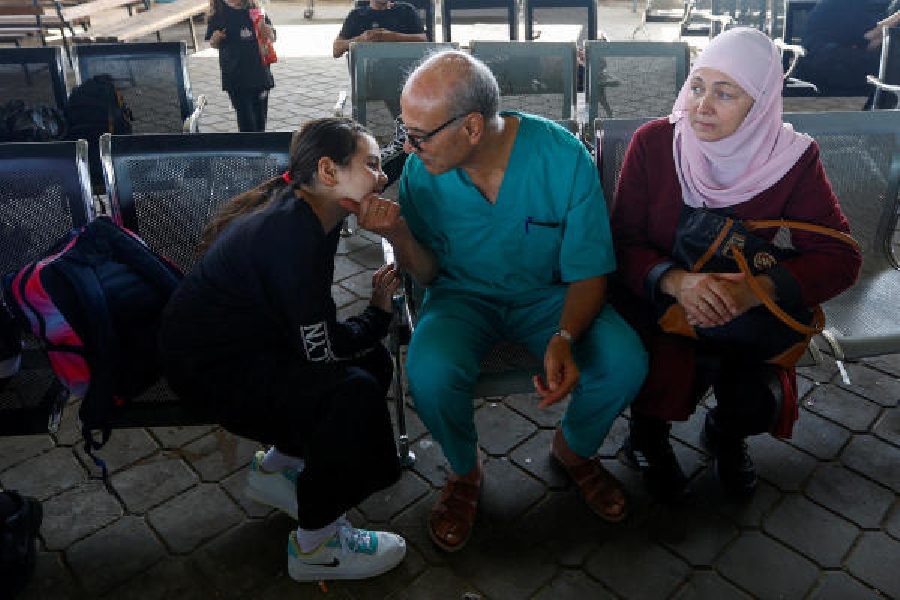As the Israeli military campaign against Hamas entered its second month, Prime Minister Benjamin Netanyahu offered the clearest indication to date about what Israel has planned for the war’s aftermath, warning that Israel will need to oversee the security of the Gaza Strip once the fighting is over.
His plan, if enacted, would appear to stop short of a full re-occupation of Gaza — a move that the US and others have warned against. He provided few details about the post-war plan and said the security situation would be “for an indefinite period”.
In an interview with ABC News that aired on Monday, Netanyahu did not say who he thought should govern the enclave after Hamas is gone. Asked specifically, Netanyahu responded only that he thought Israel would “have the overall security responsibility” over the territory indefinitely.
“We’ve seen what happens when we don’t have it. When we don’t have that security responsibility, what we have is the eruption of Hamas terror on a scale we couldn’t imagine,” the Prime Minister told ABC’s David Muir.
Israel has said its aim is to destroy Hamas and eliminate the possibility of it repeating an attack like the deadly October 7 cross-border assault that it carried out on southern Israel. Less clear is who would take Hamas’ place in governing Gaza, though Netanyahu’s comments signalled that Israel sees itself as playing a significant role in controlling the strip.
President Joe Biden has warned that it would be “a big mistake” for Israel to reoccupy Gaza, which it withdrew from in 2005, and US officials have said Israel has been “very clear” that it does not want to do so.
Hamas has been the sole governing power in the enclave since 2007.
Netanyahu did not elaborate in the ABC interview on what “overall security responsibility” over Gaza would entail but said, “Those who don’t want to continue the way of Hamas” should be in charge. Israeli officials have publicly said it is premature to discuss governance for Gaza and that they are focused on immediate military objectives.
Even so, as the Palestinian death toll and destruction in Gaza mount, and Israeli ground forces reach deeper into the territory, the question of what comes next has become all the more pressing.
Military analysts have said Israel faces a tough choice between reoccupying Gaza and withdrawing, warning that the mass displacement and civilian suffering caused by Israel’s airstrikes and ground invasion could risk the emergence of another militant organization promoting violent resistance to Israel.
Secretary of state Antony Blinken told reporters in Tel Aviv, Israel, last week that the United States was in talks with Israel and other regional leaders on what comes “the day after,” and that two things were clear: Hamas cannot remain in power, and Israel has no desire to reoccupy Gaza.
“So within those parameters, we are and will continue to have discussions with partners throughout the region and well beyond about what should follow once Hamas is defeated,” he said. “There are a number of possibilities, permutations, but it’s really premature to get into any detail about that.”
The war has come at a staggering cost. Airstrikes have reduced entire city blocks to rubble, and around 70 per cent of Gaza’s 2.3 million people have fled their homes, with many heeding Israeli orders to head to the southern part of the besieged territory, which is also being bombed.
Israeli troops have been battling Palestinian militants inside Gaza for over a week, and have succeeded in cutting the territory in half and encircling Gaza City. Food, medicine, fuel, and water are running low, and UN-run schools-turned-shelters are overflowing.
The Palestinian death toll has surpassed 10,000, the health ministry of the Hamas-run Gaza Strip said Monday, including over 4,100 minors. More than 2,300 people are missing and believed to be buried under the rubble of destroyed buildings, the ministry said.











